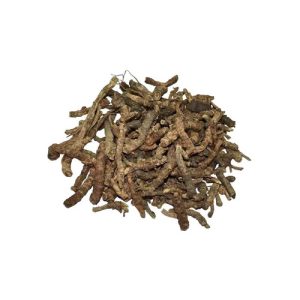Enhancing Kidney Health Naturally: Ayurvedic Solutions
The diagnosis of chronic kidney disease (CKD) or even kidney failure can be daunting. However, experts recommend taking early measures to prolong kidney function. Shockingly, kidney diseases affect approximately 850 million individuals worldwide, with diabetes and high blood pressure being the main causes of kidney failure. While renal transplants and dialysis are common treatment options, they come with their own side effects. Ayurveda, a natural and safe alternative, offers exceptional kidney disease treatment.
Understanding the Role of the Kidneys:
Kidneys play a vital role in eliminating body waste through urine. Blood enters the kidneys via the renal artery, and nephrons, tiny filters, cleanse it. Each kidney contains about one million nephrons. Apart from waste elimination, the kidneys maintain the body’s fluid volume, regulate acid-base balance, control electrolyte concentration, secrete hormones (erythropoietin, renin, activated vitamin D), and help regulate blood pressure. Additionally, they assist in removing urea, sulphur, and toxins induced by drugs or substances.
Ayurvedic Kidney Management:
In Ayurveda, the kidneys are referred to as “Vrikka” and are composed of “rakta” (blood) and “medha dhatu” (fat tissue). Any ailment affecting blood or fat can impact kidney function, such as Prameha or Diabetes. When the kapha dosha blocks the urinary system (Mutravaha Srotas), vata dosha increases, leading to improper urine production, tissue degeneration, and kidney malfunction.
Common Symptoms of Kidney Disease:
Kidney problems manifest through a variety of symptoms, including nausea, vomiting, fatigue, weakness, loss of appetite, pain, muscle twitches, changes in urination, frothy urine due to excess protein, edema in the ankles and feet, facial puffiness, constant itching, high blood pressure, shortness of breath, and blood in the urine.
Ayurvedic Remedy for Kidney Health:
Ayurveda recommends various safe and effective herbs to enhance kidney function and prevent the need for dialysis. These herbs aim to balance doshas and strengthen the kidneys. Early-stage treatment is crucial and yields better results than delayed intervention. In advanced kidney failure stages, dialysis or a kidney transplant is often required.
1. Punarnava (Boerhavia diffusa): Known for its restoration properties, Punarnava rejuvenates the body. It acts as a herbal diuretic and has anti-inflammatory properties, effectively balancing pitta and kapha doshas.

2. Kaasni (Cichorium intybus): Enhancing kidney function, Kaasni provides excellent results for respiratory, cardiac, and digestive disorders. It helps balance kapha and pitta doshas and acts as an anti-inflammatory agent.

3. Gokshura (Tribulus terrestris): Balancing all three doshas, Gokshura is a diuretic herb with rasayana properties. It is commonly prescribed for kidney stones and aids in avoiding dialysis.

4. Haritaki (Terminalia chebula): A constituent of Triphala, Haritaki possesses rejuvenating properties. It is useful in diabetes and urinary tract infections, releasing blockages within the channels.

5. Daruharidra (Berberis aristata): Known for its healing properties, Daruharidra assists in combating urinary infections and possesses anti-diabetic benefits. It balances pitta and kapha doshas and is beneficial for eye, liver, and cancer-related issues.

It is recommended to consult an expert & qualified Ayurvedic doctor to assess your specific needs and determine the appropriate treatment.
Promoting Kidney Health through Lifestyle:
Maintaining healthy kidney function requires attention to lifestyle and diet. Consider the following tips:
- Minimize the use of painkillers, sleeping pills, analgesics, and NSAIDs, as prolonged usage can harm kidney function.
- Avoid smoking, tobacco chewing, and excessive alcohol consumption.
- Limit consumption of potassium- and sodium-rich diets.
- Opt for freshly prepared food and avoid canned products.
- Reduce the intake of red meat, which is high in proteins and fats.
- Stay hydrated by consuming plenty of water and fresh fruit juices.
- Emphasize fibre-rich, low-protein, and low-saturated fat foods.
- Incorporate fresh vegetables and fruits, such as pumpkin, carrot, onion, lettuce, eggplant, radish, cucumber, cauliflower, ash gourd, bottle gourd, turnip, ginger, garlic, apple, papaya, blueberry, pears, figs, watermelon, etc.
- Moderate dairy product consumption.
- Monitor and maintain healthy blood pressure and cholesterol levels.
- Diabetic individuals must regulate blood glucose levels.
Yogasanas for Kidney Health:
To promote healthy kidneys, it is essential to incorporate exercise or yoga into daily routines. One must contact a professional and knowledgeable yoga teacher to understand the Yogasanas required for the good kidney health.
Conclusion:
Ayurveda has been found to be an exceptional way to promote kidney health in the long run as it naturally treats the doshas (imbalances) in the body. For instance, Ayurvedic herbs and treatment fixes the imbalance of pitta (fire energy) levels in the body, and heals the kidneys in a natural way, as opposed to allopathy medicines which have several side effects. In some cases, Ayurveda treatment has also enabled kidney patients to stop dialysis.
Prioritize expert guidance and caution while taking Ayurvedic medicines, and never self-medicate without a proper prescription. As the kidneys are vital for toxin elimination and overall body function, provide them with the care they deserve.









